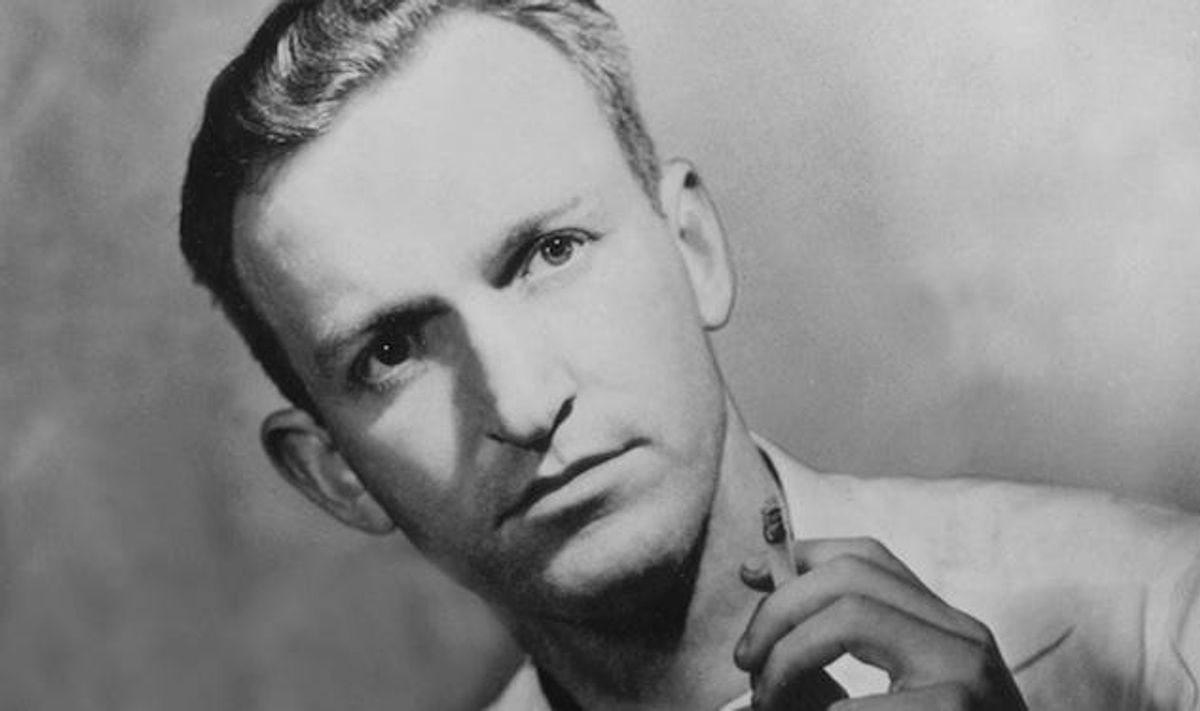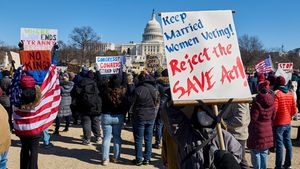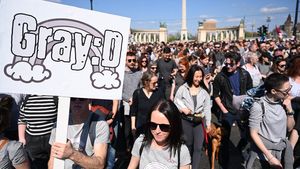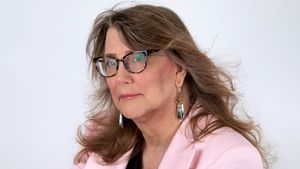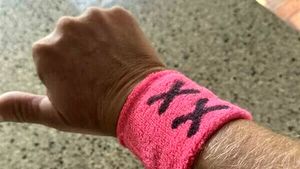When David Margolick published an essay in the New York Times Magazine titled, "The Great (Gay) Novelist You've Never Heard Of" last month, people took notice. Because it was true. Who was this man, John Horne Burns, a writer envied by both Gore Vidal and Ernest Hemingway for his prose prowess? Although his book The Gallery was published in 1947, had healthy sales, and was well-received by critics, it fell out of the literary canon and has largely been forgotten, along with its author.
Margolick has crafted a fascinating portrait of Burns in Dreadful (Other Press), which excavates the "short life and gay times" of this man who deserves recognition for writing one of the first and best novels about gay life in the military. Margolick -- who has also written Strange Fruit: The Biography of a Song and Elizabeth and Hazel: Two Women of Little Rock, among other books -- hopes his book isn't ghettoized as "gay," since he intended readers of all backgrounds to want to know this compelling, important narrative. We caught up with the him to find out what motivated a straight man to spend decades researching a difficult, often unlikable gay man who died in obscurity.
Out: You have mentioned that you were working on this book in some form or fashion for decades. What was the ultimate breakthrough, when you knew it was finally done and ready to be published?
David Margolick: When I first pulled the clips on Burns from the New York Times morgue more than 20 years ago, I'd imagined writing only a short article about him. But as I learned more about him, the project gradually grew -- first, into a long feature story, and then into a book. There were four bona-fide breakthroughs: first, when I learned that Burns's papers -- really a few boxes of materials -- were at Boston University. These included all of his remarkable wartime letters, which were in an unsorted heap, barely touched. He's clearly written them for posterity, assuming someone like me would eventually come along.
The second was finding Mark Bassett, who had written his dissertation on Burns in the early 1980s. He'd never gotten it published -- fearing that Burns would become a gay icon a la Judy Garland, the family would not give Bassett permission to use the letters he'd found, mostly those Burns had written to a gay former student of his named David MacMackin -- so publishing anything could have exposed him to a lawsuit for copyright infringement.
But Mark had saved all of his precious materials, including interviews with many people who had since died, and graciously shared them with me. With that and the B.U. letters, and my own numerous interviews, mostly with Burns's former students, I felt I had enough for a book. The third breakthrough was getting Burns's younger brother, the lawyer Thomas Burns of Boston, to authorize me to use the letters. He could not have been more gracious -- partly because he felt that 'Jack' deserved a biography, and partly because, 60 years after his death, John Horne Burns remained a vexing mystery even to him, and he wanted to know more. The fourth came when Judith Gurewich of Other Press bought the book -- on the spot, without reading a word of it. That was an act of great faith and courage on her part.
As for knowing when to quit, I'd simply run out of places to look for material. Then the only problem was when to stop tinkering. In fact, you never do. I'm still marking it up and, I hope, improving it for the paperback!
After writing several biographies and being a pro at historical and archival research, it must have been daunting to delve into the background of such an "unknown" person. It reminded me of what Justin Spring said when he wrote his book, Secret Historian, that biographies are rarely written about people who didn't end up with fame and fortune. Was that discouraging? Or did it prompt you to want to tell Burns's story even more so?
As I said, since I never imagined this would become a book, I was never daunted. Besides, it's refreshing to write about obscure people, not only in books but generally: the material about them hasn't been all picked over, and the people you interview haven't reduced their sentiments to sound bites. How many times have the same people been asked the same questions about Sylvia Plath? Best of all is to write about someone like Burns who was formerly famous, because it means there's information out there; it just needs to be excavated. It's a thrill to discover, or reintroduce, someone; it means the work you're doing is truly original.
Two things were frustrating. First, because Burns was such a loner, he seems not to have corresponded with very many people, including the leading literary people of his era. I checked many, many collections for his letters, and almost always came up empty. It was especially hard to find letters from the end of his life. He sent a few to his Italian lover, but having told me that she'd saved some, the man's daughter never managed to find them for me. And he sent some to his sister, but she refused to speak with me. I'm convinced that Burns's mother saved his all-important final letter -- crucial because it casts doubt on the widely-held (at the time) assumption that Burns had committed suicide -- only because she'd not yet gotten around to throwing it away. (I'm hoping some additional letters might surface simply from the publicity Dreadful is generating, but that hasn't happened yet.) Second, some unimaginative book review editors are Newtonians: to them, people who are obscure must be obscure are deservedly obscure, and so they tend to help them remain obscure. Fortunately, to many, many publications and websites, including yours, the intrinsic interest of Burns's story -- including his very obscurity, and why he fell into it (as I explain in the book, very much a function of his gayness) -- has made him worthy of attention.
Having a central character who is inherently unlikeable must have seemed burdensome as well. Were you forever looking for the "bright" moments, something to make him more relatable and likable?
I don't think I really had to. I knew I had to present him as he was -- that I couldn't prettify him to make him more appealing or marketable. That was simply a matter of editorial honesty. And I did not have to look very far to find things about him I admired. I liked his intelligence and wit. I liked the beautiful prose he seemed to toss off so effortlessly, at least before his career nose-dived. I liked his love of music; in fact, to an uncanny degree we liked many of the same pieces, though he was infinitely more knowledgeable about music than I. His love of Italy and Italian things was enjoyable since I lived there once and knew many of the places he did. And I liked his sense of injustice, and his empathy for victims.
So I don't agree with those critics who've written off Burns as a hopeless prick (and incidentally, have given the book short shrift because of it.) For what it's worth, I'm sure I liked Burns more than he would have liked me. I don't think I would have been one of the elite he favored when he was teaching at Loomis, the Connecticut prep school I later attended. I would have been too straight and stolid for him.
Being a straight man writing about a gay author from the mid-20th century, did you feel like you had difficulty accessing this guy's inner world? Did you consult with others to ask them what they thought was going on with his troubled life and self-sabotaging ways?
I did feel myself struggling at times to understand Burns. To begin with, I didn't understand his language -- his code. At times his letters to MacMackin were very nearly unintelligible to me. That's not just because of this code, but because they were so filled with musical, literary, and classical allusions I did not understand. (Mark Bassett, who is gay, had some of the same problems. His single encounter with MacMackin was spent trying to get him to decipher those letters.) Because I sometimes felt so tentative with Burns, among the many people to whom I showed the manuscript were several gay men, many of them writers themselves: not only Mark Bassett and Burns's other prior biographer, John Mitzel, but also Charles Kaiser, John Loughery, Chris Bram, Daniel Blue, Michael Bronski, and Michael Henry Adams. I wanted to make sure I was being neither insensitive nor oblivious.
For the most part, they assured me I was not. In fact, they were extraordinarily supportive. I've often written about minority groups, including my own, and have sometimes encountered territoriality or resentment. With these men, there was none of that. They wanted nothing more than to help me write something fair and decent and revelatory. Even with all their help, though, I'm still not sure I understand the phenomenon of Burns's self-hatred. People -- including people who knew him -- toss around that diagnosis very loosely with him, as if it's self-evident. I have to confess that I still don't know if it's true.
Burns had very complex feelings about his homosexuality. On the one hand, there probably isn't a single person in his generation who proclaimed it so proudly and publicly, which is effectively what he did in the astonishing chapter on the gay bar in his greatest novel, The Gallery. On the other hand, he resorted to all the usual subterfuges of the era -- like placing a picture of his 'fiancee' prominently in his apartment -- and was especially cruel to other gay men, like the fellow teacher he trashed in his prep school novel, Lucifer With a Book. The poor guy couldn't win -- in Burns's eyes, he was both too gay and not gay enough -- and the book very nearly destroyed him. What is the relationship between arrogance and self-hatred? Are they two sides of the same coin?

John Horne Burns (Credit: Loring Studios)
Was the point of writing the book a larger one: Turning a skeptical eye on this idea of the "Greatest Generation" and all the good deeds of these soldiers and this war, meaning Burns is secondary in that respect?
No, I think that Burns's own story, and Burns's reactions to the war, were equally important in my mind. I never wanted this book to be ghettoized as "gay." And I'd have thought that his vivid descriptions, both in his letters and in his greatest novel, The Gallery (published in 1947), of GIs running amok behind the lines in North Africa and Italy would make Dreadful important to all people, gay or straight, who care about World War II and military history and even the deployment of American troops abroad today.
Burns felt that the combination of arrogance and ignorance he saw among American soldiers, especially in Naples, was very dangerous--to them and to those they encountered. He realized that we send soldiers into strange places at our own peril, and the peril of those we're ostensibly helping. As I've written elsewhere, Burns died long, long before My Lai and Abu Ghraib, but I don't think he'd have been terribly surprised by either of them.
I heard you mention that after that wonderful piece in the New York Times Magazine ran, the sales for Burns's The Gallery shot up on Amazon, but you are still looking for a similar bump in sales for Dreadful? Can you explain the responsibility and frustration of resurrecting an author's work and what it means to you personally?
I'd be dishonest if I claimed it wasn't a bit frustrating to see The Gallery outselling Dreadful. But getting people to pay attention to him and his work was my mission, after all. And Burns and I are really in this together: I'm trusting that people who read The Gallery (and, in some cases, Lucifer With a Book and his last published novel, A Cry of Children) will become so intrigued with the guy that they'll eventually read my book, too. I'd feel the same way if the Burns revival I've sparked prompts someone finally to make a film of The Gallery, as various people over the years have talked about doing.
In some ways you have now experienced the "gay ghetto" of fiction/nonfiction that other gay authors have complained about--and in many ways, gay readers are your ideal readers--but it seems you didn't go in thinking about it in that way. Why do you feel a general interest, straight reader doesn't feel this story talks to them?
It's funny; before Dreadfulappeared, one prominent gay literary man predicted that even gay men wouldn't read it: They were too busy in the gym, he said. I hope I'm proving him wrong!
When I began looking into Burns, I didn't even know he was gay. When I first learned of him -- in my freshman year at Loomis, someone pulled me aside to tell me that a former teacher there had written a scandalous book about the place, one that was still banned from the school library, but he never said anything about his homosexuality: It was as if Burns was taboo enough already without adding that.
My hope is that just as I found his story absorbing, other straight people will, in the same way you needn't be black to care about the Civil Rights movement or Jewish to care about the Holocaust. We should all be interested in other cultures, and particularly in discrimination against people within those cultures; most of my books have been on those very themes. If that proves to be untrue, and Dreadful is read only by gay men, I'll be very disappointed. It will mean that for all the progress we've made, straight people still view gays as "other." I was at the New-York Historical Society recently when Tony Kushner interviewed Larry Kramer. It happened to be on the the night the Supreme Court issued its rulings on same-sex marriage, and when Kushner -- clearly, and even playfully, anticipating that Kramer would throw some cold water on the ambient euphoria -- asked him how he felt about the news, Kramer replied, "Yesterday they loathed us. Today they only hate us." It's overstated, perhaps, but there's clearly there's some truth to that.
Following up on that, you titled the book Dreadful because Burns often used "dreadful" as a synonym for "gay," a mocking jab against homophobia. The fact that your publisher allowed you to title the book that, include gay on the cover (something I've heard is often a publishing no-no), and have such an inventive design (the landscape/horizontal typography) all seems very refreshing. Do you think it could have only been done with a small, independent press?
I didn't know that using 'gay' was a publishing no-no. Without it in the title, it seems to me, people would have been deprived of a vital bit of information, so I very casually included it. Calling the book Dreadful was a different story. I knew it was risky, and not just because I was handing a cheap-shot reviewer a ready put-down. (Fortunately, the few people who've been truly vicious about the book have thus far resisted the temptation.) But when a friend who'd read the manuscript suggested calling it Dreadful, it just seemed so instantly right to me -- incorporating as it did not just Burns's own sardonic use of the term, but the conditions gay men of his era faced and, arguably, elements of Burns's own personality.
I think some people at Other Press might have had qualms about the title, but to their great credit, everyone deferred to me. And no one -- no one -- ever objected to using "gay" in the subtitle. Other Press is small and the people there are gutsy, so I was clearly spared the constraints and inhibitions I might have encountered at a larger house. And I, too, love the cover, which was designed by John Gall. The photograph was taken by Nina Leen of Life magazine, which had assembled the leading writers of World War II, Burns among them, for a group picture. Someone suggested to me that the vertical typography superimposed on it resembles tire tracks, and given Burns's fate, that's peculiarly apt.
Have you heard from anyone at Loomis? Do you think they'd ever invite you to talk about Burns, his books, and yours at the school? Or is he, and the topic, forever on a blacklist?
I've not heard from Loomis -- now, Loomis-Chaffee -- institutionally, though individuals there have complimented me on the book. No one who's there now ever knew Burns, and most of them had never even heard of him or Lucifer, (which is now readily available -- but, I imagine, rarely requested -- in the school library) before Dreadful appeared. More important, the place is much more open and diverse than it was in my day or Burns's (which, though they were 20 years or more apart, were really -- in terms of the mores of the place -- pretty much the same). One of the school's most illustrious recent alums is Frank Bruni, who is gay and often devotes his column in the New York Times to gay issues. So I can't imagine there'd be any objection to my speaking there about Dreadful. Whether they ask me to do so is another question; for some reason, I've never been invited back to talk about any of my work. A more important question is whether they now honor Burns in some way, like hanging his picture somewhere at the school. To those in his charmed circle, Burns was a wonderful teacher, and they never forgot him. Particularly for the school's gay students, he was an inspiration. Recognizing him there would be a truly magnanimous gesture, a blow for tolerance and academic freedom and forgiveness. They should do it.
Dreadful is available now.
